Medical expert of the article
New publications
Fruits in gastritis with hyperacidity
Last reviewed: 03.07.2025

All iLive content is medically reviewed or fact checked to ensure as much factual accuracy as possible.
We have strict sourcing guidelines and only link to reputable media sites, academic research institutions and, whenever possible, medically peer reviewed studies. Note that the numbers in parentheses ([1], [2], etc.) are clickable links to these studies.
If you feel that any of our content is inaccurate, out-of-date, or otherwise questionable, please select it and press Ctrl + Enter.
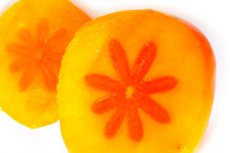
Gastritis is an inflammation of the gastric mucosa, which, if prolonged, is accompanied by its dystrophic changes. They consist of a violation of the regeneration of epithelial cells, their atrophy, the appearance of fibrous tissue. This leads to a violation of the secretory function of the stomach. One of these pathologies is gastritis with high acidity or hyperacid. An increased level of hydrochloric acid in the stomach is a determining factor in making such a diagnosis. It promotes the processing of food that has entered the stomach, the normal functioning of all organs depends on this. To eliminate inflammation, drug treatment is required, as well as adherence to a certain diet, which will lead to a softening and enveloping effect. Is there a place for fruits in this menu for gastritis with high acidity?
Indications
Fruits are a source of many vitamins and microelements necessary for the body, but at the same time they contain organic acids and essential oils, which are a strong stimulant and irritant to the secretory activity of the stomach. How not to harm yourself, but also not to bring to vitamin deficiency? There is no single indication for eating all fruits in bulk. Including one or another in your diet, you need to familiarize yourself with its effect on the mucous membrane of the digestive tract, so as not to cause an exacerbation.
 [ 1 ]
[ 1 ]
Benefits
A competent approach to choosing fruits for gastritis with high acidity will benefit the body, replenish it with essential vitamins and microelements, help restore the mucous membrane, and normalize intestinal functions. Organic acids contained in fruits maintain acid-base balance and improve the body's metabolic processes. All pathogenic microbes multiply better in an acidic environment, and the role of organic acids is to alkalize it. An alkaline environment helps strengthen the immune system, chemical reactions, and cell function. The benefits or harms of a particular fruit must be determined separately, based on its properties in raw form or after processing, heat treatment. Let's consider a number of fruits available to our consumers and their compatibility with the diagnosis of gastritis with high acidity.
 [ 2 ]
[ 2 ]
What can and what can not?
Let's consider a number of fruits available to our consumers and their compatibility with the diagnosis of gastritis with high acidity.
Bananas
Bananas are fruits that contain many useful substances: calcium, phosphorus, iron, vitamin B1, B2, B3, beta-carotene, lysine, tryptophan, methionine, ascorbic acid.
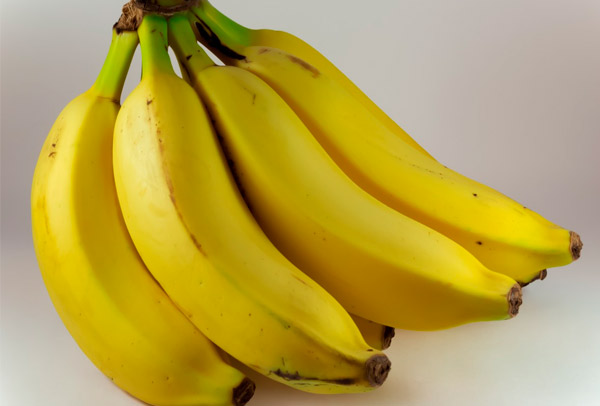
Due to the starch content, they have an enveloping and softening effect, so they will not harm any gastritis. The only warning is to avoid overeating.
 [ 3 ]
[ 3 ]
Persimmon
Persimmon is rich in beta-carotene, bioflavonoids, iodine, iron, magnesium, and potassium.
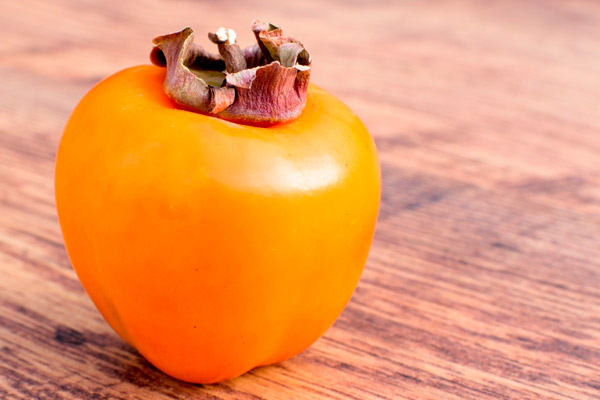
Only ripe, bright orange fruit should be consumed. Unripe, astringent fruits can cause gastrointestinal disorders.
Apples
Apples are a real treasure trove of vitamins and microelements (A, C, E, K, group B, iron, magnesium, calcium, phosphorus, potassium, copper, etc.), but unfortunately, in their raw form they are not very suitable for gastritis with high acidity.

In the absence of exacerbations, you can eat a sweet apple, peeling it, and it is better to heat treat sour varieties. There are many recipes for making apple jelly, puree, compotes with the addition of sugar and honey. Baked apples are very useful. They do not cause fermentation in the intestines, so they are included in the recommendations for feeding small children, in nutrition in the postoperative period, to eliminate dysbacteriosis, to reduce cholesterol levels. In addition, baked apples are also a very tasty dessert if you use honey and cinnamon when baking.
Pomegranate
Studying the beneficial properties of pomegranate, you are amazed by the range of its beneficial properties: hematopoietic, strengthening the walls of blood vessels, the nervous system. And all thanks to the many vitamins, minerals, microelements.
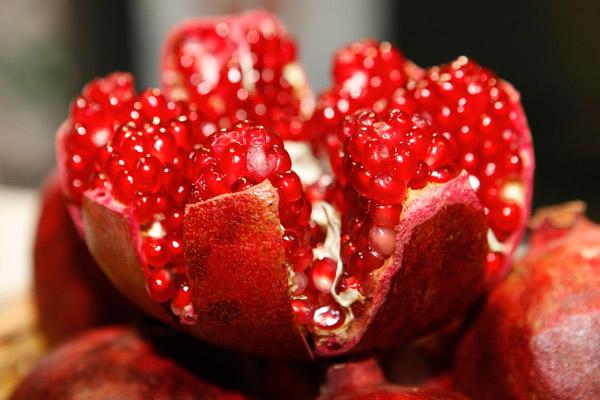
There are as many as 15 amino acids alone, from which protein is synthesized. But not in the case of gastritis with high acidity. With this disease, it is strictly forbidden to eat pomegranate. You can carefully take juice diluted with water.
Lemon
This fruit is also rich in organic acids, pectins, carotenes, vitamins, and flavonoids.
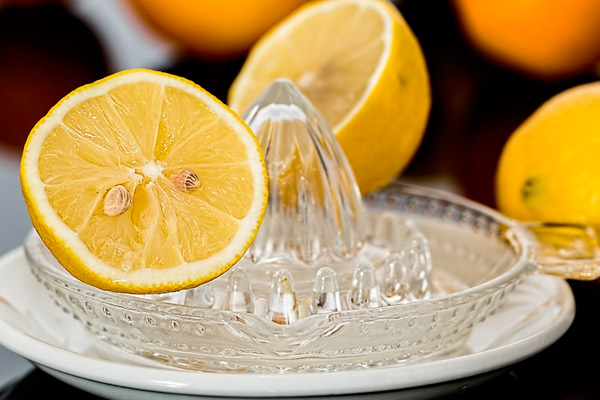
Lemon is recommended for many diseases, including gastrointestinal diseases. But with increased stomach acidity, its use can lead to even greater irritation of the mucous membrane, so it is better to abstain, except perhaps during the period of remission to allow yourself a small slice in tea.
Kiwi
Kiwi is a fruit that was bred from a wild plant in New Zealand at the beginning of the 20th century, and it appeared on our shelves not so long ago. It was loved for its taste, which is a bit like strawberry, a bit like melon, gooseberry, banana, pineapple.
It is rich in iodine, potassium, vitamins, micro- and macroelements. Due to the content of fruit acids, you should not abuse the fruit, but a few fruits after a meal will not hurt.
Tangerines
Tangerines are citrus fruits that contain many elements of the periodic table, as well as vitamins, essential oils, and organic acids. The latter elements are the factor that is undesirable in cases of increased acidity, as they can lead to even greater levels of hydrochloric acid in the stomach.

There are both sour and sweet varieties of tangerines. A few sweet fruits after a meal as a dessert will not cause much harm.
Pear
Pear is a tasty fruit, the nutritional value of which lies in the vitamins, microelements, and fatty acids it contains.
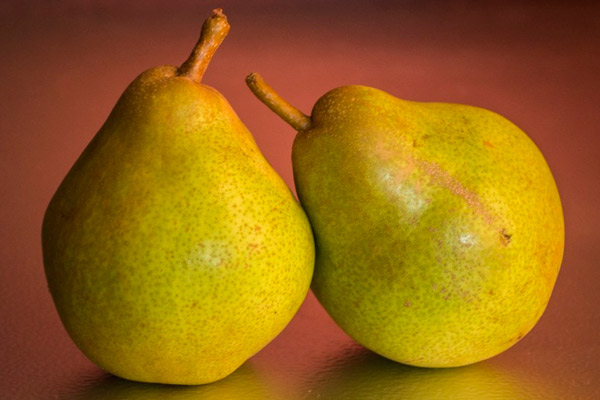
It has an antibacterial effect, but its structure consists of coarse dietary fiber, which can injure the inflamed mucous membrane. Therefore, with gastritis with high acidity, you should not eat a lot of this fruit and it is better not on an empty stomach.
Avocado
Avocado has not appeared in recipes for dishes for a long time, but it is rapidly conquering the tastes of gourmets. It is rich in vitamins, including vitamin E, minerals, but the peel and the seed of the fruit contain the toxin persin, which is dangerous for humans.
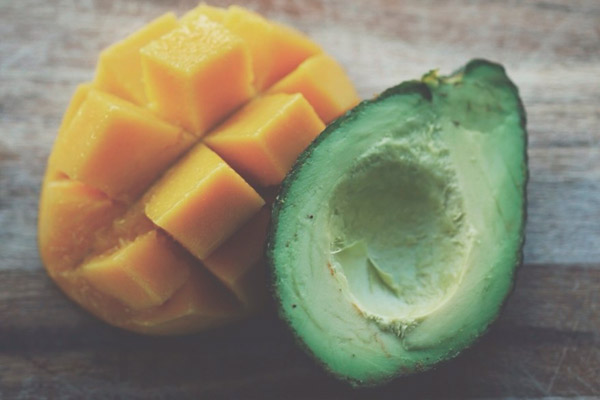
Avocados are believed to have healing properties, especially the oil, and are recommended for gastritis and even stomach and duodenal ulcers.
 [ 6 ]
[ 6 ]
Grape
Grapes are famous for their taste, nutritional, and medicinal properties. In addition to many vitamins, minerals, and organic acids, they contain sugar in the form of glucose. Table grapes and juices from them have bactericidal, anti-stress, and antioxidant properties, and remove radionuclides and heavy metal salts from the body.
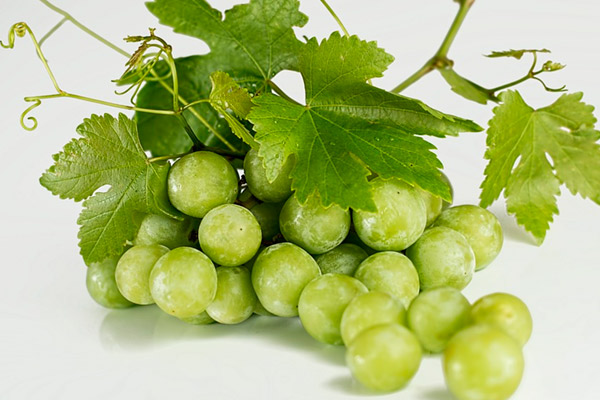
However, during the digestion process it causes fermentation, so with increased acidity, grape consumption should be limited.
Fig
Fig is a very ancient plant, the fruits of which are sweet and pleasant to the taste. Paradoxically, dried figs contain more protein, glucose, fructose than fresh ones. They are also rich in vitamins A, C, and group B. In terms of potassium content, only nuts are ahead of them, and they contain more iron than apples.
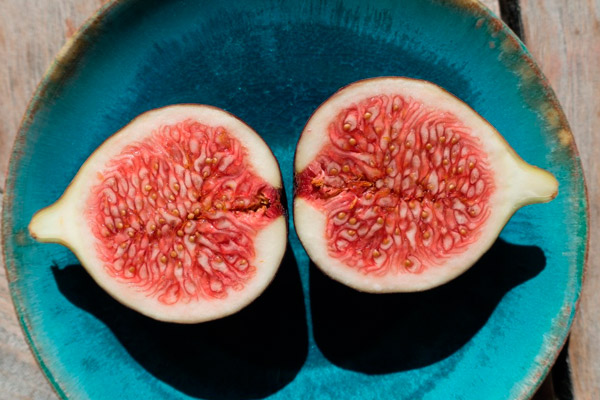
But, unfortunately, due to the rough peel and dense structure, it is not recommended for gastritis. It is better to make a compote from dried fruits, including figs, then its useful substances will be able to enter the body.
Pineapple
Pineapple contains biologically active substances, which makes it a valuable food product. At the same time, it contains a large amount of bromelain and papain - enzymes that destroy proteins. Therefore, if you have problems with the digestive system, it is recommended to limit the consumption of pineapple.
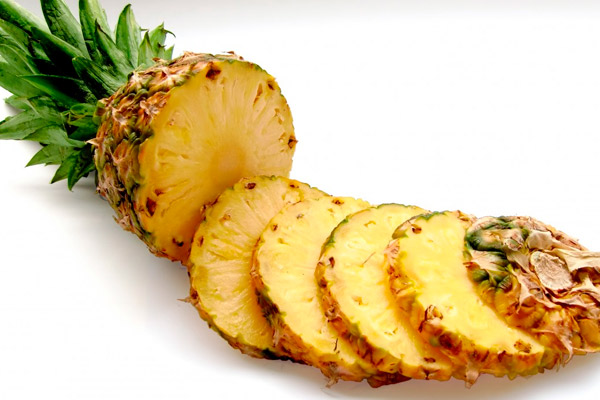
If you have high acidity, you can include fresh fruits in your diet, as they have an alkaline environment and neutralize the effect of acid on the gastric mucosa.
Grapefruit
Grapefruit has antioxidant properties, reduces blood cholesterol levels. It is rich in potassium, phosphorus, magnesium, calcium, and contains a large amount of ascorbic acid. The latter makes it inapplicable for gastritis with high acidity.
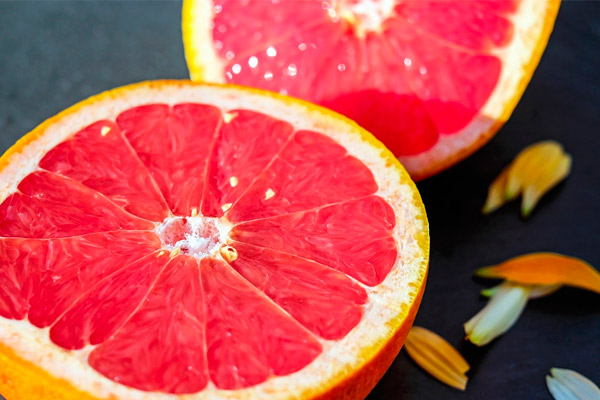
Feijoa
Feijoa fruits have not yet become as common in our country as, say, kiwi. The large fleshiness of the berry and the delicate aroma, combining the aroma of strawberries, pineapple, kiwi arouses the interest of cooks and is used in salads, compotes, for making jams, preserves. The high content of iodine, organic acids, sugars makes the fruit a dietary product and is recommended for gastritis, ulcers, colitis.
Plums
Plum is famous not only for its good taste, but also for its abundance of useful substances: microelements (potassium, calcium, sodium, copper, sodium, phosphorus, iodine, etc.); vitamins: E, A, C, group B; organic acids.
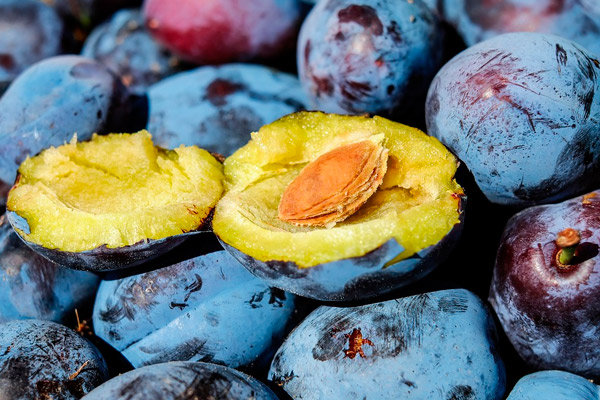
Many of its properties are not lost during processing. This makes it possible to use the fruit for medicinal purposes, including to restore the acid-base balance of the body, for certain diseases of the intestines and liver. In case of increased acidity, you should not abuse plums, but ripe and sweet varieties in small quantities will not harm your health. Kissels and plum juices diluted with water will not deprive you of the pleasure of using your favorite product in your menu.
Contraindications
Contraindications for eating fresh fruit with increased acidity include the fact of exacerbation of the disease. Acute gastritis excludes raw fruit in order to reduce the stimulation of hydrochloric acid production and further damage to the stomach walls. Sweet fruits that have undergone heat treatment and are crushed (baked apples, jelly, kissels, mousses) can also be used for acute gastritis.
Possible risks
In case of gastritis with high acidity, sour fruits with a high content of organic acids, fiber, can cause harm if taken in unlimited quantities, regardless of the time of intake (before or after meals). By following all the above information about the properties and features of the effect on the gastric mucosa of the main fruits available to us in our climate zone, you can reach a compromise between the harm of the fruit and the desire to eat it.
 [ 18 ]
[ 18 ]

